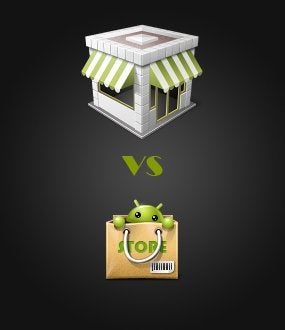Online Store vs. Physical Store – What’s The Difference?
Our independent research projects and impartial reviews are funded in part by affiliate commissions, at no extra cost to our readers. Learn more
 The difference between an online store website and a physical store? The answer to the title is pretty obvious.
The difference between an online store website and a physical store? The answer to the title is pretty obvious.
Duh. E-commerce stores exist in cyber space while physical stores are firmly planted in the physical world. They both sell products and they both are… stores.
Is that it?
The truth of the matter is that there are a lot more similarities between an e-commerce store and a physical store than people think.
They are not quite the same in a physical sense, but when it comes to visitor experiences, there are a lot more commonalities than meets the eye.
If you ever walk into large department stores or grocery stores, what a typical visitor don’t see and don’t know is that the operators of these physical stores probably spent substantial amounts of money in conducting researches on what products to sell, and where to sell them. There is also pop-up shops to consider, which could be a good strategy for your business.
It’s not random that dairy products are placed in aisle five, or if underwear is sold in Section D.
Everything is strategically placed to enhance visitors’ experiences and hopefully, improve the chances of conversion (sale).
Don’t believe it? You better.
Think about it, would large stores leave their shoppers’ experiences and the layout of their stores up to chance?
No way. No resources are spared to optimize everything.
What about Online Stores?
So how should this be different for e-commerce stores? The principle remains the same.
A website owner needs to do whatever it takes to optimize his or her website, as in a lot of cases, it is the sole gateway to potential customers.
The fact that there is no physical person there to answer any questions or guide online visitors, makes is even more imperative to have a website that “flows” naturally to improve experiences and hence increase sale conversions.
List of Considerations
Just a random list of things to potentially consider when building an online store:
- Are visitors finding what they need?
- Are visitors getting most, if not all, of their questions answered?
- What are the loading times of the website pages?
- Does the landing page persuade visitors to stay and look around?
- What color should the buttons be in order to increase click-through-rate (seriously, studies have shown that more online visitors click on orange buttons on average)
- Should I place Product X on top of Product Y, but below Product Z?
This is by no means an exhaustive list of things to consider – not even close.
Arguably, due to the fact that there is a lack of customer service representatives to immediately serve online visitors, improving online visitors’ experiences in e-commerce stores becomes far more critical than physical stores.
Conclusion
After all, it is much easier for a potential customer to close an internet browser, than to hop back into his or her car to drive away – there is no guilt of wasting gas or time.
That’s why optimizing your e-commerce website to create unique experiences is a critical ingredient to success.





Leave a comment